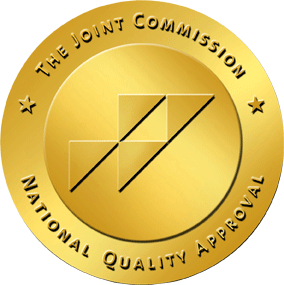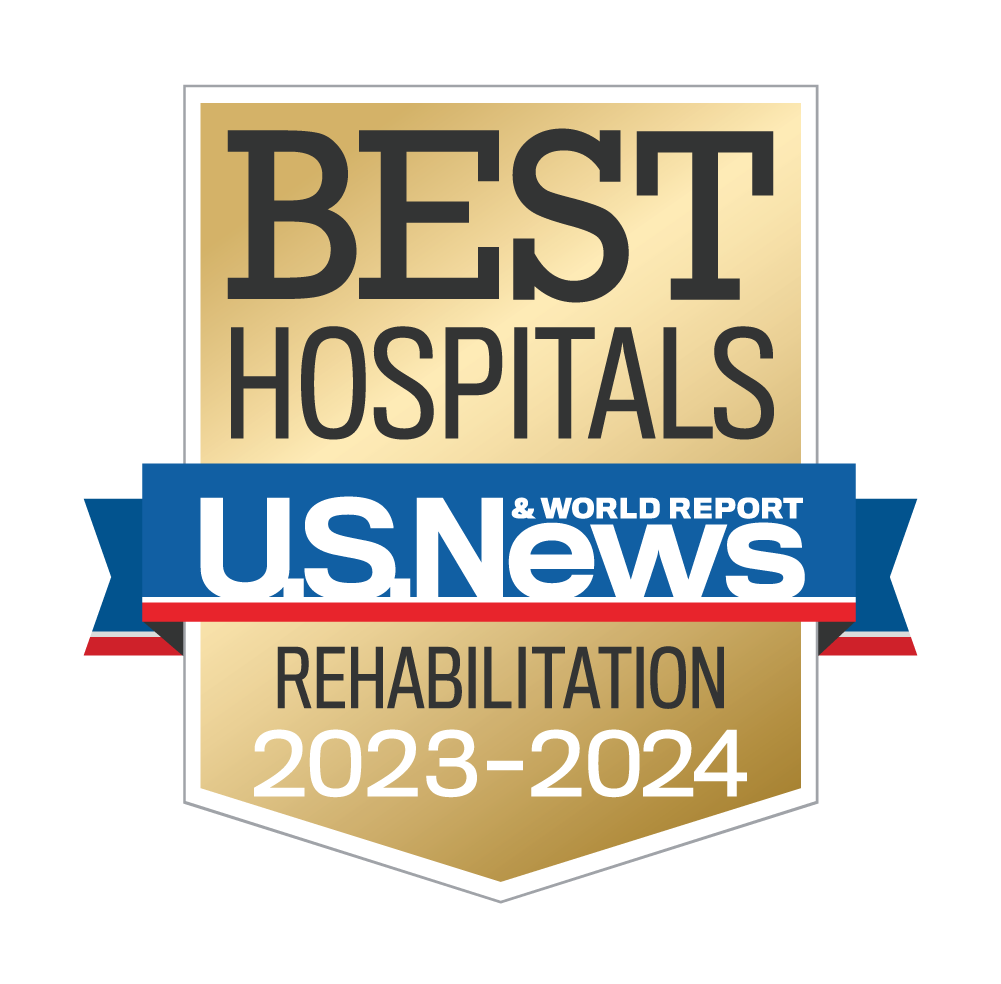The Michigan Medicine Stroke Rehabilitation Program focuses on helping you develop maximum functional independence and a satisfying quality of life. We work with you to develop, support and strengthen your mind and your body to enable you to regain functional abilities including safely caring for yourself, moving around in your home and in your community, thinking and communicating with others, returning to your life roles and coping and adjusting to stroke recovery.
We strive to provide the best rehabilitative care for patients recovering from stroke through a patient and family-centered program that is compassionate, collaborative, evidence-based, and focused on developing maximum functional independence.
We hold certification in Stroke Rehabilitation from The Joint Commission, making Michigan Medicine the first hospital in Michigan to receive certification for both our Comprehensive Stroke Center and our Stroke Rehabilitation Program.

Features of our model of care include:
- We treat the whole patient and involve family and loved ones in every step
- We have a collaborative interdisciplinary team model
- Our Stroke Rehabilitation evidence-based guidelines direct our patient care
- We use select quality of care indicators to guide the continuous improvement of our program
- Our unique evidence-based Nursing Mobility Program provides for additional opportunities for mobility outside of therapy time
- We provide the opportunity to use multiple rehabilitation programs and technologies to enhance and support your rehabilitation goals
- Our patients are more likely to go home compared to the national average
The Stroke Rehabilitation Team
Stroke patients interact with the same nationally-recognized faculty and staff members as the rest of the acute inpatient rehabilitation patients. A description of each type of team member can be found here.
Inpatient Stroke Rehabilitation Experience
The goal of the Michigan Medicine Stroke Rehabilitation Program is to help you develop maximum functional independence and a satisfying quality of life. We work with you to develop, support and strengthen your mind and your body to enable you to regain functional abilities including safely caring for yourself, moving around in your home and in your community, thinking and communicating with others, returning to your life roles and coping and adjusting to stroke recovery.
Before Admission:
Patients are evaluated by a Rehabilitation Physician and typically by an Occupational Therapist, Physical Therapist and/or Speech-Language Pathologist to determine if inpatient stroke rehabilitation is needed. If inpatient stroke rehabilitation is recommended, then the Admission’s Coordinator verifies insurance authorization and medical clearance from the rehabilitation physician. Once these are verified, then admission can occur.
Once Admitted:
A comprehensive initial evaluation with an individualized plan of care will be completed by the rehabilitation team. This includes the rehabilitation physician, nurse, occupational therapist, physical therapist, speech-language pathologist, therapeutic recreation specialist, social worker, and a rehabilitation psychologist.
- The team will complete a medical and functional evaluation including your ability to care for yourself, get in and out of bed, walk and get up and down stairs.
- We will also assess for any changes in the way you think, communicate and swallow.
- It’s also important for us to learn about your needs for social and emotional support, emergency financial issues and spiritual or religious needs to help maintain a sense of well-being, hope and strength.
- After this evaluation, the team will determine an anticipated discharge date with you.
During Your Rehabilitation Stay:
During your stay, you and the stroke rehabilitation team coordinate your care plan, education, activities, exercises, programs, technologies and durable medical equipment to address your rehabilitation goals. Additional providers and services will be consulted as appropriate to meet your continued medical and recovery needs.
Interdisciplinary Team Meetings: During your rehabilitation stay, the team will meet at least weekly to discuss your progress and address any changes to your plan of care.
Stroke-Specific Patient and Family Education: You will be provided with a patient and family education pathway to guide your education and training with your providers. It gives you and your caregivers an opportunity to plan your education with your team and to have a way to ask follow up questions later.
Rehabilitation Technologies and Adjunct Programs
Computer Therapy Lab
The lab is one of three computer therapy labs in the country. Whether you are re-learning how to use your affected arm or leg to wash and dress yourself or you are reinforcing balance strategies for your mobility training, the lab uses technology to help develop the necessary physical, cognitive and visual skills to improve your level of function and independence. The computer therapy lab uses multiple rehabilitation technologies to provide the necessary repetition, intensity and task-oriented training needed to support your rehabilitation goals. These technologies include gravity-modifying exo-skeletons, electromyographic (EMG) controlled therapeutic gaming and computer control, virtual reality, mobile computer therapy carts, functional electrical stimulation, and low end assistive technologies.
Robotics
Lokomat: A robotic-assisted, treadmill-based gait trainer with a body weight support for early mobility and gait training. It includes a non-immersive virtual reality component to increase engagement.
Andago: A mobile robotic tool for over-ground gait training to bridge the gap between robotic treadmill-based training and walking. The Andago can sense where you want to go and follow you while providing safe body weight support. This allows you to gain confidence and a sense of safety while learning to walk over different surfaces and obstacles.
Electrical stimulation
NMES: Neuromuscular electrical stimulation (NMES) is used for muscle strengthening, maintaining muscle mass, assisting with edema management and preventing changes in muscle following a stroke.
FES: Functional electrical stimulation is used to retrain functional activities such as reaching, grasping, standing and walking. It can be a short-term treatment to help re-train movement or long-term solutions called neuroprosthetics.
- RT300 FES Ergometer: An FES ergometer that stimulates the arms, legs and core during arm and leg cycling. It includes a non-immersive virtual reality component to increase engagement, provide feedback and track performance improvement.
- RT Xcite: A portable FES unit providing task specific strengthening and gross motor training activities for the arms and legs.
- Bioness L300: A programmable FES device that stimulates muscles that lift the foot to clear the ground during gait to walk more naturally with increased speed and balance. The L300 can be used for short term rehabilitation or as a long term neuroprosthesis.
Community-based Aquatics
The University of Michigan Stroke Rehabilitation Program utilizes a community-based approach to providing aquatic therapy through community re-entry trips to local accessible pools. Our Certified Aquatic Therapists will individualize program that can provide a unique rehabilitation and educational environment to facilitate recovery and improve balance, strength, endurance and changes in postural tone.
Community Reintegration
Before you go home, your team will collaborate with you to plan a trip into the community to help you gain confidence in your personal growth and recovery and prepare you for participating in community activities again.


